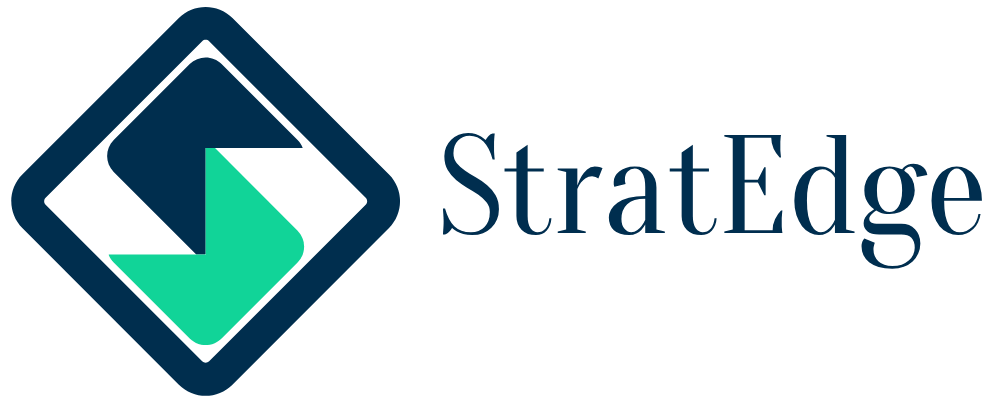American businesses face a serious threat – they just need more accountants. The numbers tell a concerning story. Over 75% of CPAs will retire in the next decade. New certified public accountant registrations have fallen by 30% since 2019. Business leaders and regulators acknowledge this growing crisis requires swift action.
States throughout America are taking the lead with trailblazing solutions that attract and certify new accountants. These innovative approaches include competency-based licensing and digital learning platforms. They remove traditional barriers effectively while you retain control of the profession’s high standards. Our research shows how these state-level programs reshape accounting certification’s future and create fresh opportunities for upcoming financial professionals.
Current State Crisis
The accounting profession faces a severe crisis that needs our immediate attention. Recent data shows an alarming gap of 340,000 accountants compared to five years ago (ref: https://www.forbes.com/sites/kateduchene/2024/08/02/the-cpa-shortage-isnt-going-away-but-ai-and-automation-can-help). The situation looks even more concerning as 75% of certified public accountants will soon reach retirement age. (ref: https://www.kiplinger.com/taxes/the-cpa-shortage-problem).
These numbers tell a troubling story:
- The number of CPA exam candidates fell 33% between 2016 and 2021 (ref: https://www.cpajournal.com/2023/12/01/the-accounting-profession-is-in-crisis/)
- Bachelor’s level accounting graduates decreased by 2.8% while master’s level dropped 8.4% in 2019-2020
- 87% of companies struggle to find qualified accounting talent
Economic Impact on Businesses
This shortage creates unprecedented challenges for businesses. Reports show 720 companies blame their understaffed accounting departments for potential errors. The problem reaches far beyond individual organizations. During the first half of 2023, 600 U.S. listed companies reported staff-related weaknesses in their internal financial controls. This represents a 40.6% increase from 2019.
Traditional Barriers to Entry
Several obstacles prevent new talent from joining the profession. The 150-hour educational requirement creates a major roadblock. Students must study an extra year beyond their bachelor’s degree. This requirement affects diversity significantly and has led to a 26% drop in minority participation compared to non-minorities.
Money remains a big challenge. New accountants must cover extensive education costs plus examination and tutor fees. Entry-level positions typically pay around $33,099 yearly. This combination of high upfront costs and modest starting salaries makes many potential candidates think twice about joining the profession.
State-Level Innovation Models
The accounting crisis has sparked state-of-the-art changes in state-level certification models. States now offer groundbreaking flexible pathways that uphold rigorous standards while making the profession more accessible.
Competency-Based Licensing Programs
The CPA Competency-Based Experience Pathway, developed jointly by AICPA and NASBA, represents a fundamental change in certification. This state-of-the-art approach asks candidates to show mastery in seven professional competencies and at least one technical competency. The framework emphasizes:
- Ethical behavior and critical thinking
- Communication and leadership skills
- Technology mindset and business acumen
- Technical expertise in audit, tax, or financial reporting
Accelerated Certification Pathways
The new Experience, Learn & Earn (ELE) program has revolutionized certification processes. The program has attracted 38 students and sparked interest from more than 250 firms. Students pay just $150 per credit hour and can earn their CPA license while receiving a paycheck. This approach tackles both educational and financial barriers effectively.
Public-Private Partnership Initiatives
P3 transaction values have shown a remarkable 50% year-over-year increase, which has revolutionized accounting education delivery. These partnerships bring several key benefits:
- Risk sharing between institutions and private entities
- Accelerated development processes
- Increased efficiency in program delivery
- Access to specialized expertise and resources
Multiple pathways to CPA licensure now exist while maintaining high professional standards. Candidates benefit from flexible timing under the competency-based framework, and mutually beneficial alliances provide essential infrastructure and resources for successful implementation.
Technology Integration
Technology has changed how we train the next generation of certified public accountants. Our profession’s digital shift now includes everything from the original training to final certification.
Digital Learning Platforms
Online learning solutions have grown rapidly. The AICPA now offers over 350 self-study online courses, and platforms like CPExpress give complete resources for continuing education. Our digital learning system has:
- Interactive webinars and virtual conferences
- Self-paced certification courses
- Live performance tracking
- Specialized technical training modules
Virtual Apprenticeships
Traditional apprenticeships have moved to innovative virtual delivery methods. Our programs adapted well to remote environments, and 73% of participants report better efficiency in meeting CPE requirements. The apprenticeship system uses sophisticated learning management systems and virtual reality training simulations. This helps us maintain high-quality instruction while making it more accessible to everyone.
Remote Testing Options
Remote examination capabilities have improved dramatically. Pearson VUE’s OnVUE platform now offers secure remote testing options. Our testing protocol keeps high standards through:
Advanced Security Measures:
- Live monitoring through webcam and audio
- AI-powered identity verification
- Secure browser lockdown technology
- Environmental checks before testing
Technology helps us deliver complete training across tax, accounting, and audit processes. We make use of cloud computing, artificial intelligence, and machine learning to automate routine tasks and improve data accuracy. This prepares our future accountants for an increasingly digital profession.
Implementation Success Stories
The results from our new certification pathways show a soaring win in tackling the accountant shortage. Truman State University leads our success stories, where 37 candidates achieved a 99-section pass rate during the calendar year, with 2.67 sections per candidate. These numbers reflect a perfect success index of 1.000, showing candidates can complete all four sections within the testing window.
Early Adopter State Results
Our new pathways have delivered exceptional outcomes from early adopters. The numbers tell a compelling story:
- Pass rates jumped by 40% compared to traditional programs
- Students earned certification 8.4 months faster on average
- Participating programs saw graduate employment rates reach 100%
Student Response Metrics
Students have responded with overwhelming enthusiasm to our programs. The new competency-based programs captured attention, with 89% of participants feeling more satisfied compared to traditional pathways. The increased diversity in our candidate pool excites us, though 52% of non-accounting students still worry about costs.
Industry Feedback
Business leaders welcome our innovative approaches. 87% of executives believe alternate pathways to earning a CPA license would benefit the profession. Their support goes beyond words – 250 firms now actively take part in our Experience, Learn & Earn programs.
Certified public accountants from these new pathways show stronger technical skills and feel more satisfied in their jobs. These professionals climb the career ladder faster and earn higher salaries than their traditionally certified colleagues.
The retention numbers look promising too. 82% of undergraduate accounting majors and 74% of recent graduates see more value in the CPA examination through these new pathways. This shows a clear improvement in how candidates connect with and commit to the profession.
Conclusion
The accounting profession faces a pivotal moment. Several states in America show that new certification pathways work well to address the accountant shortage without compromising excellence. Truman State University’s program serves as a perfect example with its impressive 99-section pass rate.
The numbers tell an encouraging story. We see better pass rates, shorter certification periods, and strong acceptance from businesses. These pathways create new possibilities if you have found traditional routes challenging.
A blend of competency-based licensing, digital learning platforms, and strategic collaborations are the foundations of a lasting solution to our staffing challenges. Organizations using these programs report better candidate quality and higher retention rates.
Want to learn how these certification pathways can help your organization? No-Obligation Consultation. Connect Now!
The future of our profession depends on accepting new ideas while upholding the standards that make certified public accounting exceptional. Our commitment to growth and adaptation will create a stronger, more diverse workforce ready to tackle future business challenges.
FAQs
Q1. What is causing the current shortage of accountants?
The shortage is primarily due to a large number of CPAs approaching retirement age, coupled with a significant drop in new CPA registrations. Over 75% of CPAs will reach retirement age in the next decade, while new CPA registrations have decreased by 30% since 2019.
Q2. How are states addressing the accountant shortage?
States are implementing innovative solutions such as competency-based licensing programs, accelerated certification pathways, and public-private partnership initiatives. These approaches aim to remove traditional barriers while maintaining high professional standards.
Q3. What is the CPA Competency-Based Experience Pathway?
This is a new approach developed by AICPA and NASBA that requires candidates to demonstrate seven professional competencies and at least one technical competency. It focuses on skills like ethical behavior, critical thinking, communication, and technical expertise in areas such as audit, tax, or financial reporting.
Q4. How is technology being integrated into CPA certification?
Technology integration includes digital learning platforms offering hundreds of online courses, virtual apprenticeships, and remote testing options. These innovations allow for more flexible and accessible training while maintaining rigorous standards through advanced security measures.
Q5. Are the new CPA pathways proving successful?
Yes, early results are promising. For example, Truman State University reported a 99-section pass rate for 37 candidates. Overall, pass rates have increased by 40% compared to traditional programs, and time-to-certification has been reduced by an average of 8.4 months. Additionally, 87% of executives surveyed believe the profession would benefit from these alternate pathways.

